
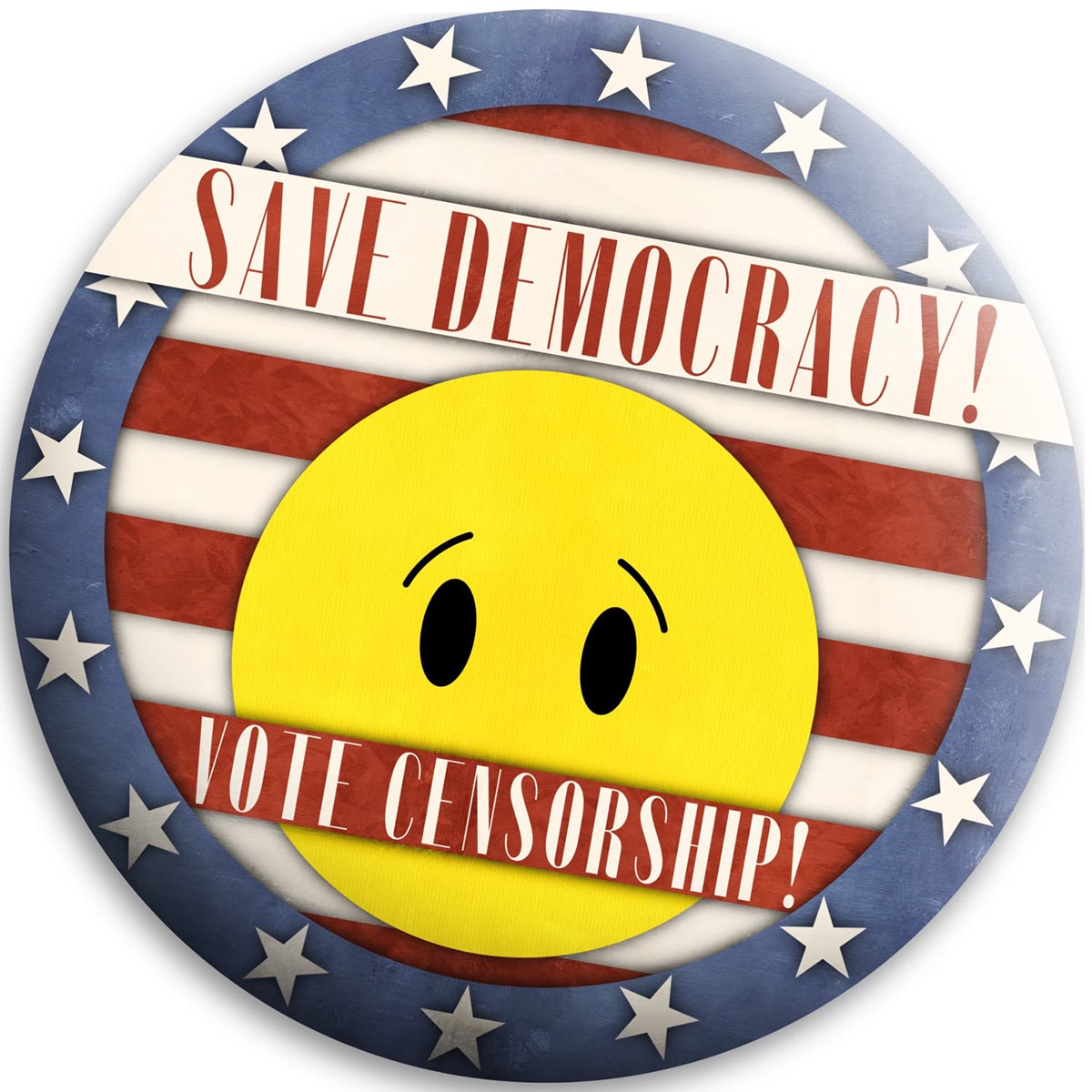
Save Democracy From Informed Voters: Vote Censorship!
by Matt Taibbi and Paul D. Thacker | Nov 1, 2024
Nico Grant of the New York Times rode shotgun with Media Matters of America to shoot down 30 conservative broadcasters as unfit to appear on YouTube:
YouTube, which is owned by Google, has prided itself on connecting viewers with “authoritative information” about elections. But in this presidential contest, it acted as a megaphone for conspiracy theories…
Kayla Gogarty, a research director at Media Matters who led the analysis, said that “YouTube is allowing these right-wing accounts and channels to undermine the 2024 results.”
Grant’s story garnered huge pre-buzz thanks to conservative targets pre-empting his “scoop” with colorful early responses. “I do hope… you’ll note that I told you to fuck off,” was the acid reply of Tucker Carlson, accused of participating in one of “286 videos containing election misinformation” reaching “more than 47 million views.” Ben Shapiro ripped Grant’s exposé as an “October surprise,” saying the purpose was to “pressure YouTube to demonetize and penalize any and all conservatives” a week from Election Day.
As Grant’s story roared across social media, eliciting outrage from Democrats and Republicans alike, a trio of Washington Post reporters published a similar piece: “Elon Musk says X users fight falsehoods. The falsehoods are winning.” Instead of a Media Matters report, the Post worked off new “analysis” by the Center for Countering Digital Hate, the Labour-connected advocacy group featured last week in Racket and The Disinformation Chronicle.
Musk created “Community Notes” on X/Twitter as a crowdsourced alternative to censorship, but CCDH was not happy with its results:
X is poised to play a prominent role in the U.S. presidential election, a race in which Musk is a major backer of Republican nominee Donald Trump and spreading unfounded claims of voter fraud — most of which go unchallenged by his fact-checking program… The CCDH’s analysis… tracked how Community Notes responded to 283 posts that contained election claims identified as false or misleading by independent fact-checking organizations.
CCDH’s annual priority this year is “Kill Musk’s Twitter” through “Advertising focus” to drive away X’s corporate advertising revenue, the chief weapon being shrieking reports claiming “hate” proliferates on the platform. This now-exposed contempt for Musk and free speech was evident in the Post conclusions:
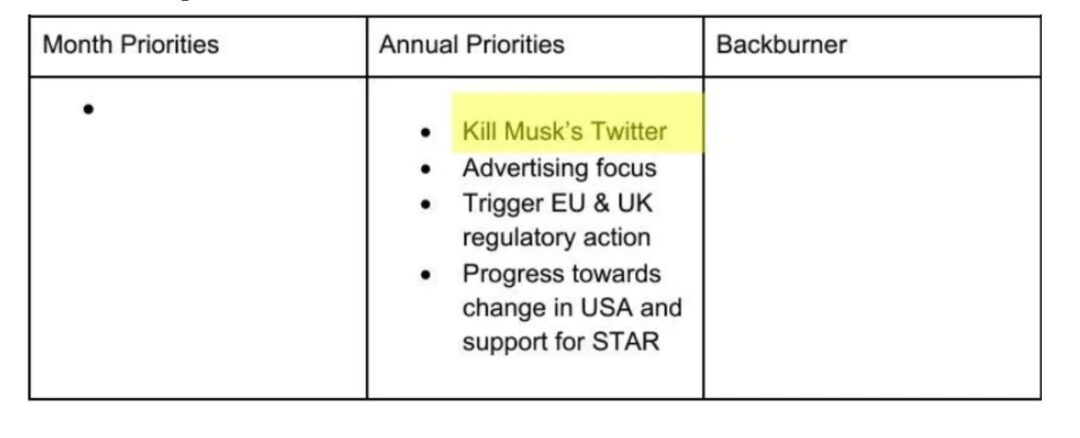 The Times/MMA “studied” 286 videos, while the Post/CCDH analyzed 283 Notes. Yet each outlet used a format so common in the “anti-disinformation” era, it now reads more like spam or clip-art than journalism. A DNC-aligned group produces a “report” documenting a sciencey-sounding quantity of “misinformation” incidents, then passes the scary number to a politically willing mainstream news outlet, which trumpets the new “facts” while publicly and privately pressuring platforms to remove offending material. Welcome to the new “accountability journalism.”
The Times/MMA “studied” 286 videos, while the Post/CCDH analyzed 283 Notes. Yet each outlet used a format so common in the “anti-disinformation” era, it now reads more like spam or clip-art than journalism. A DNC-aligned group produces a “report” documenting a sciencey-sounding quantity of “misinformation” incidents, then passes the scary number to a politically willing mainstream news outlet, which trumpets the new “facts” while publicly and privately pressuring platforms to remove offending material. Welcome to the new “accountability journalism.”
The problem with the Times piece is it defines “false claims” and “election misinformation” so broadly that legitimate questions or analyses and even jokes get wrapped in with far-out conspiracy tales. The MMA report denounced content that could “undermine confidence in the 2024 election results even before any votes were cast,” which apparently didn’t include its own headline, “YouTube let right-wing figures undermine the 2024 election results even before any votes were cast.”
Carlson made it for a clearly sarcastic crack: “I don’t think we’re allowed to talk about voter fraud on YouTube, which tells you that it’s real.” Shapiro made it for saying opposition to a Voter ID proposal suggests Democrats were fine with not showing ID, “which suggests they are fine with the possibility of voter fraud.”
Tim Pool was approached by Grant and mentioned in the Times piece seemingly as a way to get in a line about his work for Tenet media, through which Russia Today “allegedly funneled… money.” Neither the Times report nor the MMA version cited an instance of election misinformation by Pool, however. “The New York Times piece was remarkably tame,” Pool said. “There was nothing substantive in it.”
Tom Fitton of Judicial Watch made the list of 286 bad videos by referring to criminal indictments of Trump and saying that if he loses, “people are rightly going to say, well, they had their thumb on the scale, so it’s no surprise.” Again, you can disagree, but is that an issue of fact? Asked if the purpose of the piece was to get him removed from YouTube, Fitton said “probably,” and noted the Post had already sent him queries about yet another article seemingly calling for censorship of podcasts.
Even comedian Greg Gutfeld somehow made the list for saying Democrats would win with “votes, legal or illegal,” though there’s “very little evidence on that, but that hasn’t stopped me before.” This is a self-owning joke and could be interpreted almost as the opposite of a charge of voter fraud. “It’s almost hilarious how desperate they are for content,” Gutfeld said. “They now report on jokes!”
It’s no accident Media Matters and CCDH worked this “censorship two-step” to America’s two papers of record at the same time. They have a history of tag-team action with these papers. In fact, some of the more embarrassing moments in our recently obtained CCDH papers involve the Times and Post.
In notes from a pair of meetings in March of this year, CCDH officials exposed how chummy they are with both papers when discussing where best to place the conclusions of a report called “Hate Pays,” about “How X accounts are exploiting the Israel-Gaza conflict to grow and profit.” Their first choice is the Times, which in a March 5th meeting they complain won’t run an early version of the report as a “stand alone.” So they decide to run to their second choice: the Post:


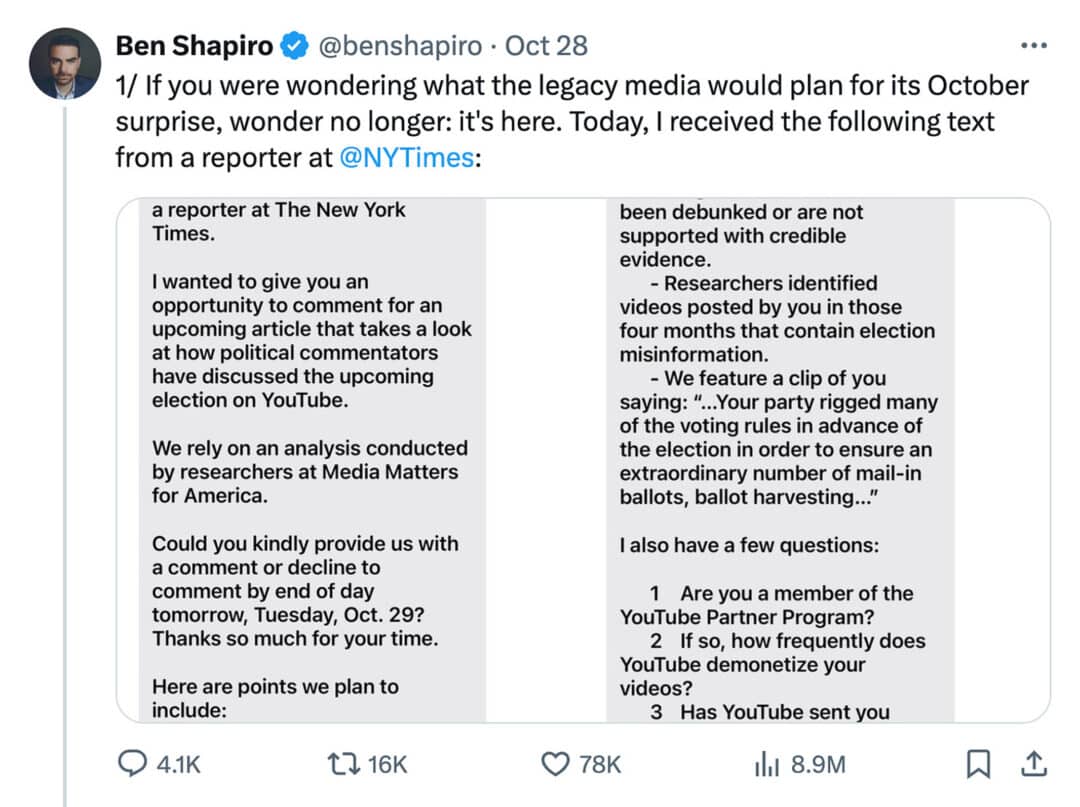





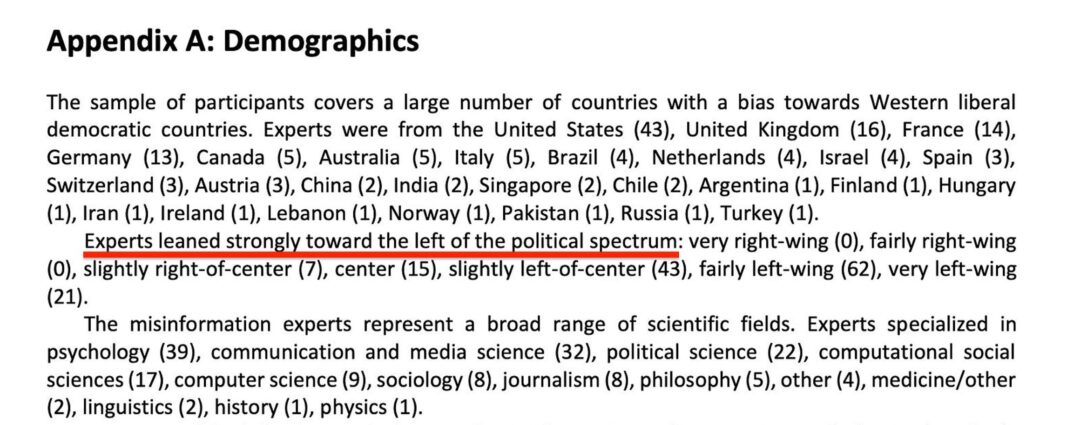
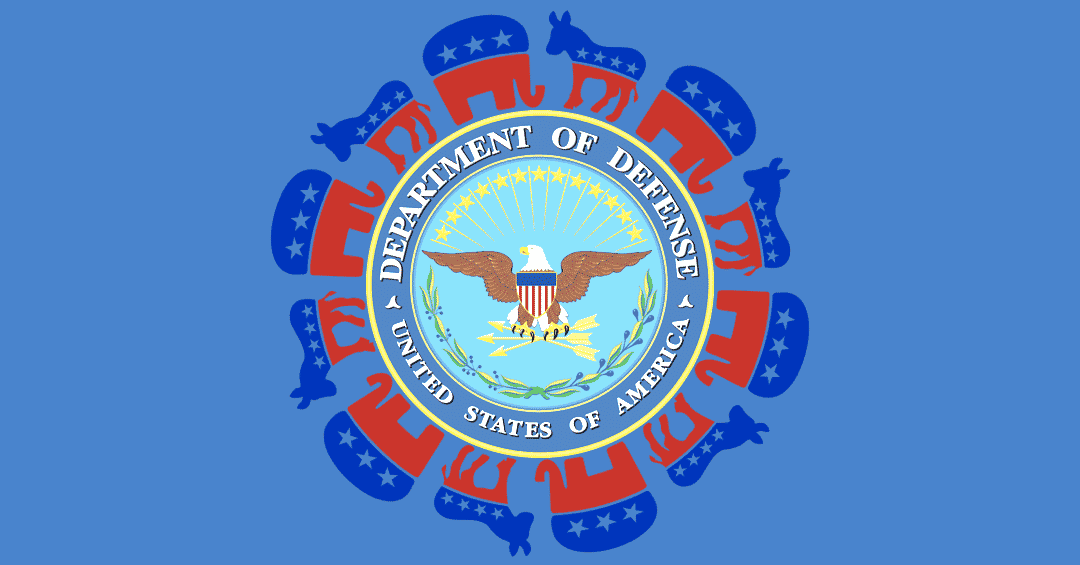



0 Comments